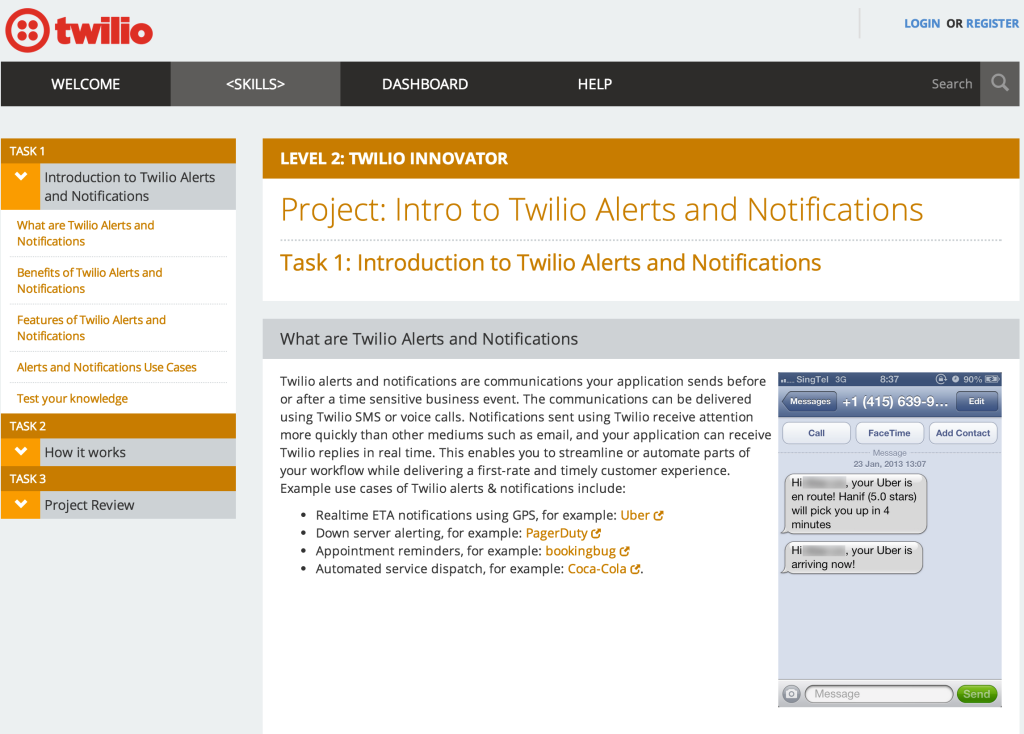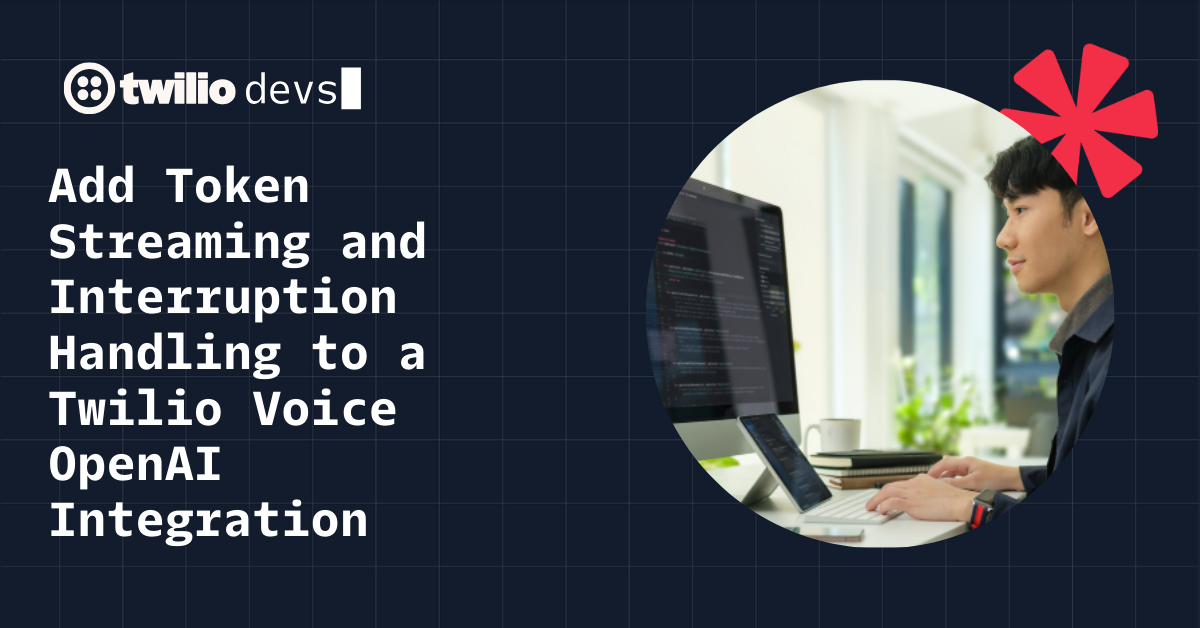Don’t Make Me Ask: Automating Routine Tasks with Twilio Alerts and Notifications
Time to read: 3 minutes


Twilio Alerts and Notifications Training
Twilio provides introductory developer training, as well as deep-dives into Twilio use cases. The new Alerts & Notifications training is the latest use case deep-dive, and is especially useful for developers working with applications that process time sensitive events. Like all Twilio training, the Alerts and Notifications badge provides introductory lessons, along with detailed technical information and hands-on coding projects to jumpstart development. It covers the key decisions and workflow for sending alerts and notifications via phone or text. This includes, when to use long codes and short codes, how to use pools of long codes to increase message throughput, and how to configure your application for global SMS. It also provides best practices for tracking notification delivery, SMS conversations, and the status of a Twilio call in real time. Finally, it includes great tips to help you scale your messaging application and resolve potential message delivery issues before they happen.
Build Your Own Alerts & Notifications Application Using Guided Tutorials
Three hands-on projects provide practice with common uses for alerts and notifications. These projects are presented as step by step coding tutorials, demonstrating how to build an application for a fictional veterinary office:
- Automated appointment reminders: Build an appointment reminder application that uses Twilio voice to place reminder calls to pet owners the day before their appointment. Using bidirectional communication, your application will automatically receive appointment confirmations and log cancellations.
- Billing alerts: Extend the appointment system by sending mobile receipts and doctors notes to the customer after the appointment has ended. Use Twilio delivery information to confirm if the customer received the message and fallback to a voice call if necessary.
- Mobile surveys: Add an automated survey system. After the appointment ends, send survey questions to the customer via SMS. Your application will keep track of the conversation and correlate the customer survey responses with their appointment information.
Additional Twilio < Skills > Training and Badges
Along with the new Alerts & Notifications training, Twilio offers Twilio projects and training for a wide range of developers. Those just getting started with Twilio should begin with the Twilio Explorer badge which describes how to set up your developer environment and introduces TwiML and the Rest API. Developers who have explored a bit and would like to learn more should take a look at the Doer badges for lessons and projects on building apps using Messaging, Voice and Client. Experienced Twilio developers looking to demonstrate their skills and differentiate on their expertise can skip straight to the Doer Capstone project to build a single application combining capabilities from all three products and earn their Explorer and Doer badges with one quick project. The Contact Center Specialization badge describes building or extending Contact Center capabilities, including info on using Elastic SIP Trunking.

Twilio < Skills >
Twilio is a great resource for developers looking to master Twilio’s products and build exceptional communication applications. was designed and built as an accompaniment to Twilio’s API documentation. While the docs provide key information and reference, takes a more guided approach, using longer narratives, filling in background information, exploring real world communications problems and offering accompanying coding projects to give depth to learning.
Related Posts
Related Resources
Twilio Docs
From APIs to SDKs to sample apps
API reference documentation, SDKs, helper libraries, quickstarts, and tutorials for your language and platform.
Resource Center
The latest ebooks, industry reports, and webinars
Learn from customer engagement experts to improve your own communication.
Ahoy
Twilio's developer community hub
Best practices, code samples, and inspiration to build communications and digital engagement experiences.

